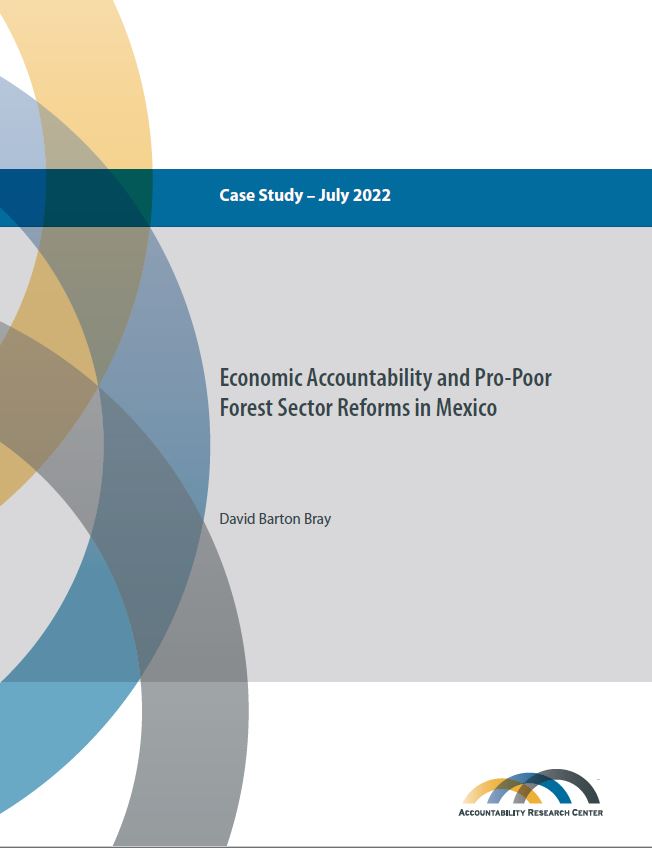Economic Accountability and Pro-Poor Forest Sector Reforms in Mexico

Economic Accountability and Pro-Poor Forest Sector Reforms in Mexico
Date: July 2022
Author(s): David Barton Bray
Publication type:
Published by: Accountability Research Center
“Sandwich strategies” are interactive processes in which reformers in government take tangible measures that reduce the risks of citizen action from below, driving virtuous circles of mutual empowerment between pro-accountability actors in state and society. This case study is one of a set of 18 published here, which are among those included in comparative analyses of whether and how sandwich strategy initiatives drive institutional change.
The Mexican government’s policies towards forest lands in the agrarian sector have experienced iterative cycles of openings from above and mobilization from below. Agrarian reforms laid the legal foundation for the emergence of ‘community forest enterprises’, through which poor forest communities have come to exert control over much of the forest sector and timber market. Over the course of nearly a century, poor forest communities have developed autonomous control over millions of hectares of forests: in 2020 there were over 1,600 community forest enterprises directly managing at least 6.2 million hectares of commercial forest, and conserving a substantially larger area.
This case study explores how this remarkable achievement was generated through an iterative, contested, and uneven process between the state actors and rural social movements. As such, the case offers a rich opportunity to explore the dynamics of the sandwich strategy, which transcends conventional divisions of state and society by identifying reinforcing interactions between pro-reform advocates from both spaces. It uses the sandwich strategy framework to argue that although state-society synergies were essential to creating the legal regimes that allowed for community forest enterprises to flourish, their economic success has given these enterprises a large degree of economic autonomy from the state, thus diminishing the contemporary necessity of such synergies to maintain community control over the forestry industry.
David Barton Bray is Professor in the Earth and Environment Department at Florida International University (FIU). He received his PhD in Anthropology from Brown University in 1983. From 1983-1986 he was with the Roger Thayer Stone Center for Latin American Studies at Tulane University. From 1986-1997 he was Foundation Representative with the Inter-American Foundation. He is widely published in academic journals and journalistic venues including the New York Times, and in 2020 published Mexico’s Community Forest Enterprises: Success on the Commons and Seeds of a Good Anthropocene (U. of Arizona Press).
